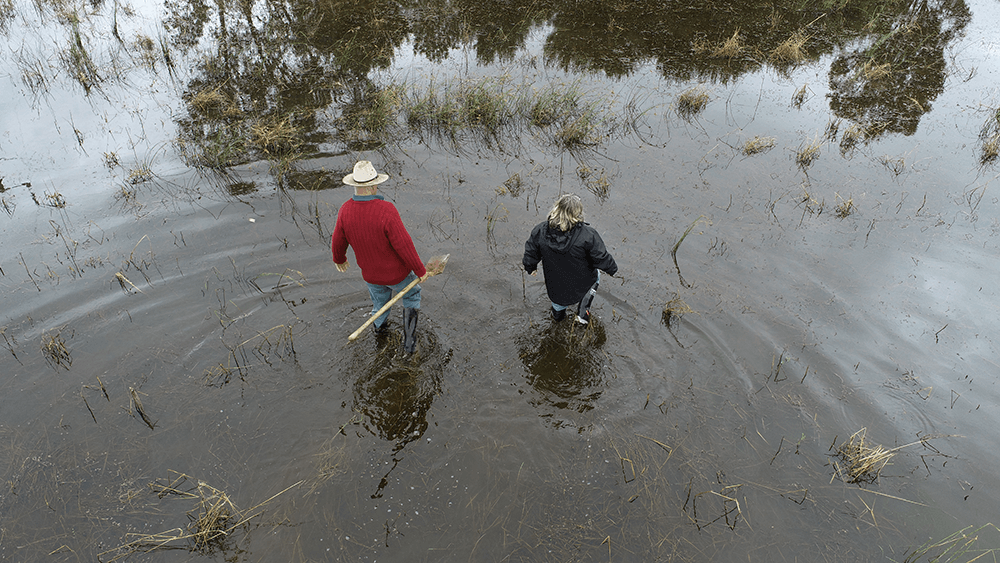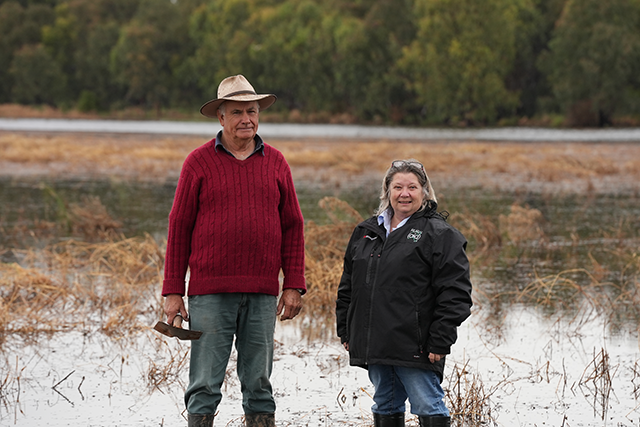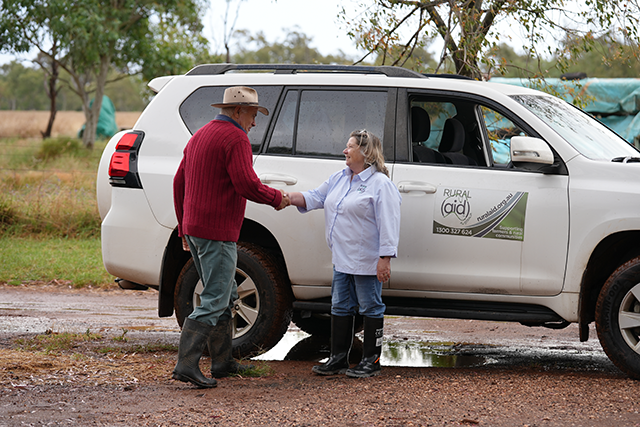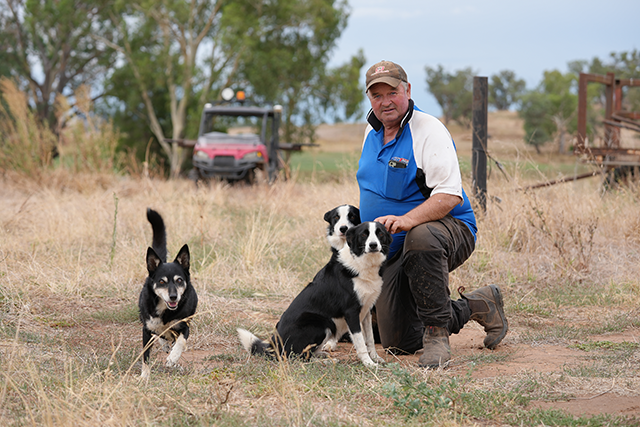
Condobolin farmer Roger “Gypsy” Kuhl shows a Rural Aid counsellor his severely flooded paddocks
“Farmers were on tenterhooks for weeks, anxiously waiting for the predicted flood waters to arrive. The ‘watching and waiting’ was a torturous time for thousands on the land.”
Rural Aid’s Manager of Mental Health and Wellbeing Service, Myf Pitcher, says the 2022 flood crisis caused a significant, and ongoing, decline in mental health.

Unpredictable fear and overwhelming devastation
Aware of the impending inundation, but unsure of the scale of what was to come left many farming families in a state of heightened stress over a prolonged period. The uncertainty created an atmosphere of fear, taking a significant toll on the mental health of those affected in the process.
The aftermath presented farmers with a dual challenge: facing the daunting task of rebuilding their decimated lives and properties, while also grappling with the profound loss they had experienced. The sheer scale of the devastation left some farmers unsure of where to begin.
“Some farmers jump right into their recovery, and they take quite a physical approach. But we know that plenty of farmers have more of a ‘freeze’ response. Their ‘jobs list’ after a disaster is so overwhelming that they can’t work out where to start, and often describe feeling stuck,” Myf said.

Free and community-targeted support
Rural Aid counsellors were on the ground within days, providing ‘farm gate’ support at no cost to grieving farmers.
“Our counsellors meet our farmers at the farmgate, on property. Our team walk alongside our farmers and see the devastation and anguish first-hand. This face-to-face contact, often accompanied by ‘incidental’ counselling, is just invaluable for time-poor, disaster-affected farmers,” Myf said.
“Our Mental Health and Wellbeing team is made up of compassionate, trained, rurally-based professionals. They’re great at listening to our farmer’s needs, problems, and To-Do lists, and supporting them to work out the best way to get back on track with their recovery,” Myf explained.

Eugowra farmer Dave Herbert reflects on the effects of the floods
The importance of long-term support
While immediate assistance was crucial for farmers dealing with the day-to-day challenges of the flooding event, as time passed it became clear that a longer-term support system was also necessary to help affected farmers recover.
“Roughly six months post-disaster, farmers’ energy and motivation really drops off. They’ve been running on adrenaline for months, but it just gets to a point that they’re so bone-tired, they sometimes can’t get out of bed anymore. It’s even harder if there have been a number of events like the floods in a short period of time. It’s at this point that a lot of farmers may say, “This has really knocked me; I think I need some extra help,’” Myf said.
Eugowra farmer Dave Herbert experienced three floods in just five weeks.
“Every one of those events was larger than the one before…. it decimated communities along the river.”
He said the lows of farming can make it hard to keep sight of the bigger picture.
“Farming can be quite rewarding, but it’s actually very challenging. Even just in my working career, we’ve experienced a number of droughts, dry times, floods.”
“The support that we get from various people in the community, it’s critical.”
To support the ongoing recovery and mental health assistance Rural Aid is providing to our farmers, please consider making a tax-deductible donation this tax season. Thank you for standing with our mates in the bush when they need it most!
